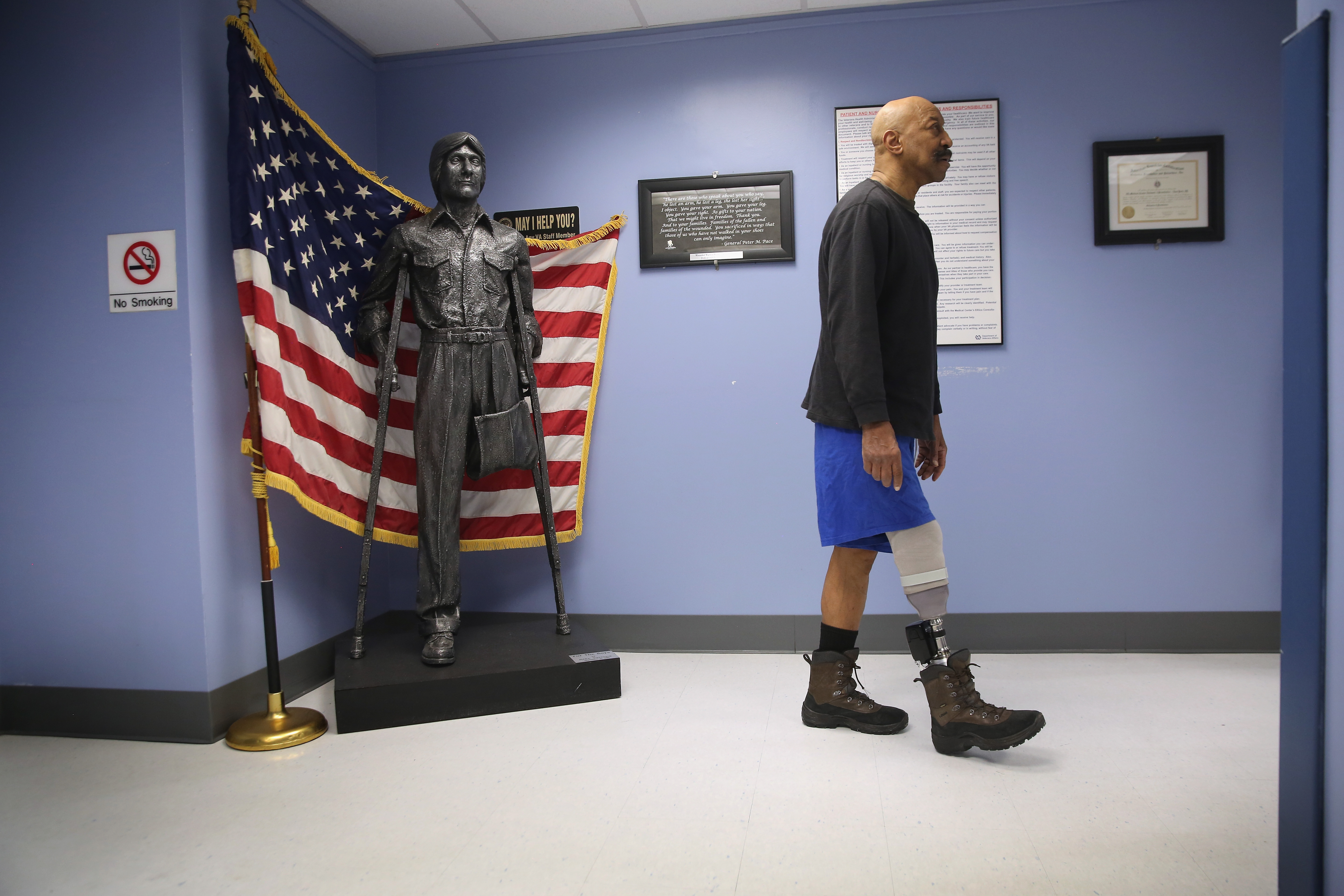A veteran's guide to navigating health care after service
Figuring out the health-care system can be one of the hardest parts of adjusting to civilian life

Post-military life can be a flood of decisions, from finding a new career to choosing how, or if, you want to cut your hair.
While health care isn't always a top priority, it's among one of the most significant and confusing decisions military families need to make while transitioning into new lives. Most military members likely spent their formative years in a system that guaranteed access to free or affordable care, a scenario that doesn't necessarily play out in the civilian world, says Blake Bourne, the executive director of North Carolina's Charlotte Bridge Home, a nonprofit that helps veterans successfully adjust to life in the civilian world.
"Health care is the best microcosm for the challenges of navigating life outside of military life," says Bourne, who is also a retired Army officer. "It's not something we ever had to contend with, within service."
The Week
Escape your echo chamber. Get the facts behind the news, plus analysis from multiple perspectives.

Sign up for The Week's Free Newsletters
From our morning news briefing to a weekly Good News Newsletter, get the best of The Week delivered directly to your inbox.
From our morning news briefing to a weekly Good News Newsletter, get the best of The Week delivered directly to your inbox.
While on active duty, service members and their families receive care on bases and installations, or through the Department of Defense's Tricare health insurance program. But once a service member exits the military, whether by retiring or exiting after a shorter period of time, they'll be thrust into a civilian health-care world that can be confusing and expensive.
While most departing service members know they're entitled to care through the nation's Veterans Affairs system as long as they served on active duty for more than 24 months without a dishonorable discharge, many return to rural areas that may not have VA centers close by. Jobs may not come immediately, leading to potential gaps in health-care coverage for families who aren't proactive about making sure each member of the family has insurance.
Here is some helpful health-care advice for those that have left or are getting ready to leave the military.
Accessing the VA
A free daily email with the biggest news stories of the day – and the best features from TheWeek.com
Most people leaving the service will be eligible for care at the nation's VA system. But enrollment is not automatic. To register with the VA, Bourne recommends registering for care soon after exiting, even if you're healthy and not expecting any immediate need for care. You can register directly on the VA's website, or by calling 1-877-222-VETS (1-877-222-8387).
Certain vets are seen as higher priorities in the VA system, including those with service-related disabilities, recipients of the Purple Heart, and recently retired combat veterans.
Accessing care at the VA has its own challenges, as well-documented cases of subpar and delayed care have shown. Members may live in an area where the nearest VA system is hours away, and not convenient.
But veterans don't need to navigate the system by themselves, says Justin Constantine, a retired lieutenant colonel in the U.S. Marine Corps who now speaks frequently about veterans' issues. Most veteran service organizations, like the Wounded Warrior Project, the Veterans of Foreign Wars, Disabled American Veterans, and similar nonprofit groups have experience in navigating what can be a confusing system.
"There's no reason to do it on your own," he says.
Family coverage
While most veterans themselves are entitle to health care through the VA system, their families and dependents will need to find another source of care. Knowing what type of temporary coverage is available after leaving the military will help protect family resources while the family transitions to their new life, Bourne says.
"Be very clear around what you do have getting out and who it covers in your family," he advises.
Those who retire after 20 years of service or who are medically retired because of injuries generally have health insurance through Tricare available to themselves and their families at a low cost.
For those who leave the military before retirement age, families can opt to extend health-care coverage through Tricare, the health-care system that dependents of active duty and reservists rely on. Exiting members can get coverage for up to six months through the Transitional Assistance Management Program (TAMP). After that, members can extend their health care for up to three years post-separation by purchasing a plan through the Continued Health Care Benefit Program (CHCPB).
Document injuries
Try to document your health and any injuries while still in uniform, and don't feel ashamed or reluctant to be honest about the effects, physically or mentally, Constantine says. In a profession where jumping out of planes or living in war zones is expected, ignoring or downplaying injuries can lead to regrets when they begin to manifest themselves years later.
"If they don't correctly document their medical record while on active duty, it's almost impossible to do later," Constantine says.
Having major traumatic incidents documented will make any future VA claims easier to process.
Collect your records
If possible, get copies of your medical records from your time in the military. It will be easier to transfer needed records to future providers and help if you need to file a future claim with the VA for injuries suffered while in uniform.
Constantine, who was shot in the head while deployed to Iraq and subsequently hospitalized at a Navy hospital, says he insisted on getting a paper copy of his medical records before he was discharged. And he's glad he did. Years later, when going through the medical retirement process, he found out the hospital had somehow misplaced records of his stay.
"If I didn't [get copies of records), that would have been a big problem," he says.
Transitioning from the military can be a massive change, with members adjusting to new sets of workplace expectations and having to translate skills learned in uniform to civilians unfamiliar with battlefield parlance. Securing health care is just one piece in building that new life, and one that members need to be prepared for, Constantine says.
"Once you leave and go off base, it's more expensive for you and more expensive for your spouse and children," he says.
-
 How the ‘British FBI’ will work
How the ‘British FBI’ will workThe Explainer New National Police Service to focus on fighting terrorism, fraud and organised crime, freeing up local forces to tackle everyday offences
-
 The best family hotels in Europe
The best family hotels in EuropeThe Week Recommends Top kid-friendly hotels with clubs, crèches and fun activities for children of all ages – and some downtime for the grown-ups
-
 Moon dust has earthly elements thanks to a magnetic bridge
Moon dust has earthly elements thanks to a magnetic bridgeUnder the radar The substances could help supply a lunar base